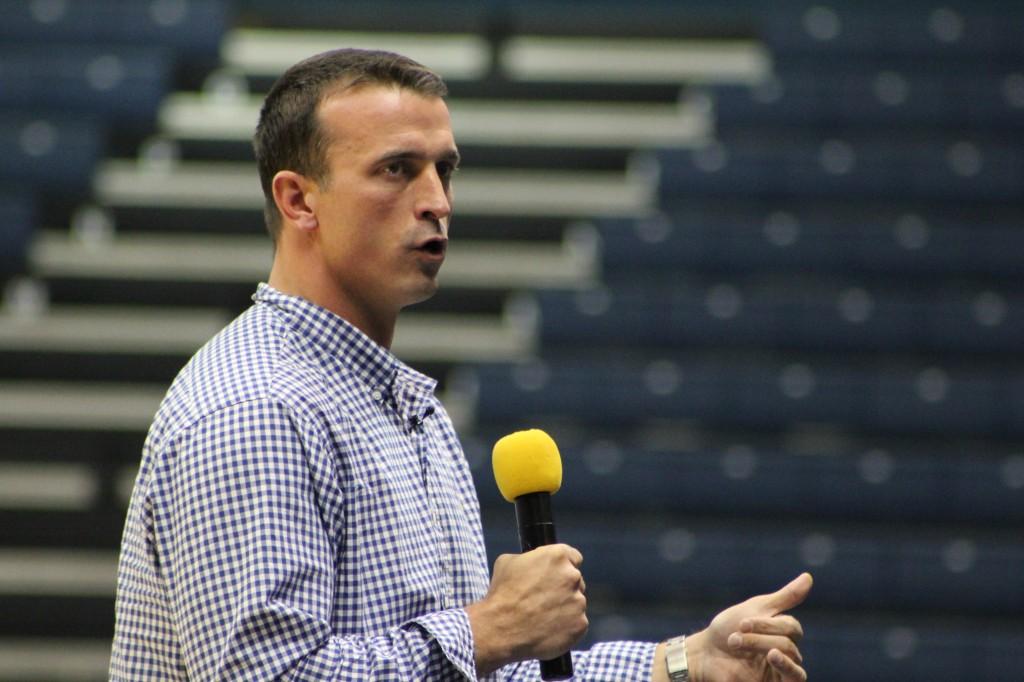
If there is ever a story about opportunity, failure, loss and redemption and life and death it can be heard from former NBA player and drug addict Chris Herren.
Men’s Head Basketball Coach Steve Prohm invited Herren to speak at CFSB Center to hundreds of Murray State students, athletes and faculty members Wednesday afternoon about his struggle with substance abuse while being a basketball standout and starting a family.
Herren was a McDonald’s All-American for Durfee High School in Fall River, Mass., his senior year. He was rated the second best guard in the nation at that time, right behind future 11-time NBA All-Star Allen Iverson. He had his pick of major college programs such as Duke, Kentucky, Florida and UCLA but he chose to stay in his home state and attend Boston College.
Herren said that decision changed his life forever.
Four months into his freshman year, Herren was kicked out of Boston College for testing positive for cocaine and marijuana three times.
Among his many regrets, Herren discussed his biggest.
“I had an opportunity in 1994 to sit in a gym like this and hear people talk about substance abuse and all I had to do was pay attention.” Herren said. “My biggest regret is that I didn’t listen.”
After he had been kicked out of Boston College, he joined Fresno State’s squad until he was drafted by the Denver Nuggets as the 33rd overall pick in the second round of the 1999 NBA Draft. He would then be traded to his beloved Boston Celtics after his rookie season, all the while battling drug addiction.
After two seasons Herren said his addiction had grown so strong he gave up an opportunity to continue to play in the NBA to continue to chase his drug habit.

After seven felonies, a botched basketball career and a family to take care of, Herren took control of his life.
sixteen years of self-destruction and drug abuse ended Aug. 1, 2008, for Herren and he realized sharing his story might be his true calling.
Herren has spoken to a wide range of audiences from high schools to the Oklahoma City Thunder and said if he could help just one person it would all be worth it.
“The overall goal is to educate, to raise awareness, to hopefully inspire some of these athletes to not go down the same road,” Herren said. “You know, you never imagine your life will turn out the way it does when you are 18, 19, 20 years old playing college sports.”
Herren’s story goes far beyond the realm of sports. Millions of people can relate to his story whether its personally or not. It is a story about perseverance and redemption and he said it strikes a nerve with people because he doesn’t hold back anything.
“Honesty, it’s just the rawness and honesty of the story,” he said. “I don’t come in here and try to sugarcoat anything. In a sense because what it’s about is getting to the kids and deterring them from going down this path.”
He uses his life as a cautionary tale about self-control and self abuse. Herren ended his speech with a word of warning.
“I sat in your seat and said ‘It wouldn’t be me,’” Herren said. “Straight up, there is a Chris Herren sitting in this crowd though. Today is your 1994. Today is the time to ask yourself what is it about myself I don’t like? How can I escape who I am? Today is your day to not be me.”
Nick Dolan, Staff Writer




























































































